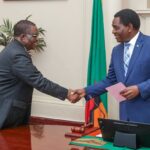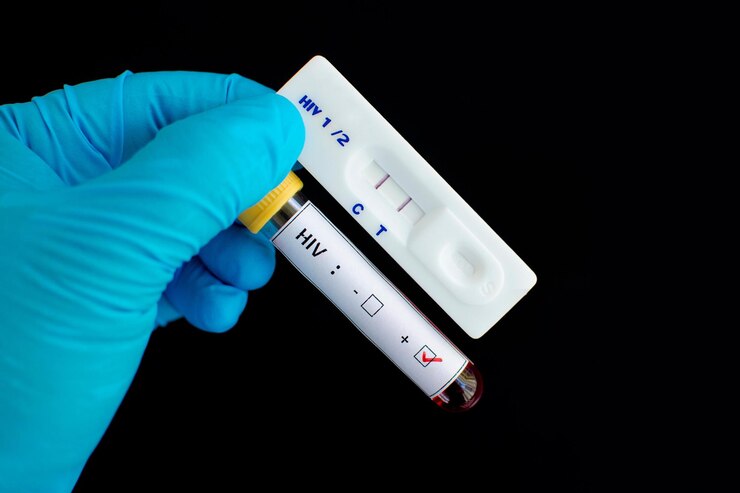In a significant show of solidarity, China has donated 5,000 HIV test kits to Lusaka Province, marking the first step in supporting Zambia following a recent health sector funding cut by the United States government. The donation was officially handed over yesterday by Wang Sheng, Minister-Counsellor at the Chinese Embassy in Zambia.
The gesture comes at a critical time when Zambia is working to maintain and enhance public health services amidst reduced financial support. Minister of Health Dr. Elijah Muchima, in a speech read on his behalf by Director of Clinical Care and Diagnostic Services Dr. Lisulo Walubita, welcomed the donation and underscored the importance of international cooperation in health.
“Health cooperation is the cornerstone of socio-economic development,” said Dr. Muchima. “Zambia remains committed to harmonising drug registration standards with international best practices, ensuring robust systems that support disease control and universal health coverage.”
Dr. Muchima emphasized that a strong pharmaceutical foundation is vital for any successful healthcare system and pointed to the opportunity for deeper collaboration with Sichuan-based pharmaceutical companies. He proposed the formation of a Zambia-Sichuan health industry working group to enhance local pharmaceutical manufacturing and co-develop innovative solutions tailored to African health challenges.
Wang Sheng reaffirmed China’s commitment to strengthening Zambia’s healthcare system. He highlighted the continued support of the Chinese community in Zambia and praised the growing recognition of traditional Chinese medicine (TCM) in disease prevention and treatment.
“China stands firmly with Zambia during this time. This donation is just the beginning of a broader cooperation that will support improved healthcare delivery,” said Mr. Wang.
The role of traditional medicine in national healthcare also received attention, with both governments acknowledging its value. The Zambian government has shown interest in China’s traditional treatments for HIV/AIDS and high blood pressure, with plans to incorporate such methods to supplement conventional medicine.
Lusaka Province Minister Sheal Mulyata echoed these sentiments during a meeting with a Chinese delegation led by Sichuan Province Vice-Governor Yang Xingping. She noted that traditional medicine remains an integral part of Zambian society and praised the growing partnership between Lusaka and Sichuan under the twinning programme.
“With the establishment of this partnership, we anticipate increased trade, knowledge exchange, and investment opportunities that will benefit both regions,” said Ms. Mulyata, affirming her office’s support for Chinese initiatives in the province.
Vice-Governor Yang highlighted that China’s traditional medicine has proven effective in treating major illnesses and pledged continued medical support to Zambia. He also proposed that Zambia consider establishing a consulate in Sichuan Province, becoming the first African country to do so, to further strengthen diplomatic and economic ties.
“Currently, 23 countries have consulates in Sichuan, but none from Africa. We encourage Zambia to lead the way,” said Mr. Yang.
According to Mr. Yang, the trade relationship between Sichuan and Zambia continues to flourish. In 2024, the total trade volume reached 379 million Chinese Yuan (approximately USD 52 million), highlighting the growing economic cooperation between the two regions.
As Zambia navigates new health financing realities, this latest support from China not only bridges critical gaps but also sets the stage for long-term health sector transformation anchored in innovation, cultural exchange, and international partnership.






